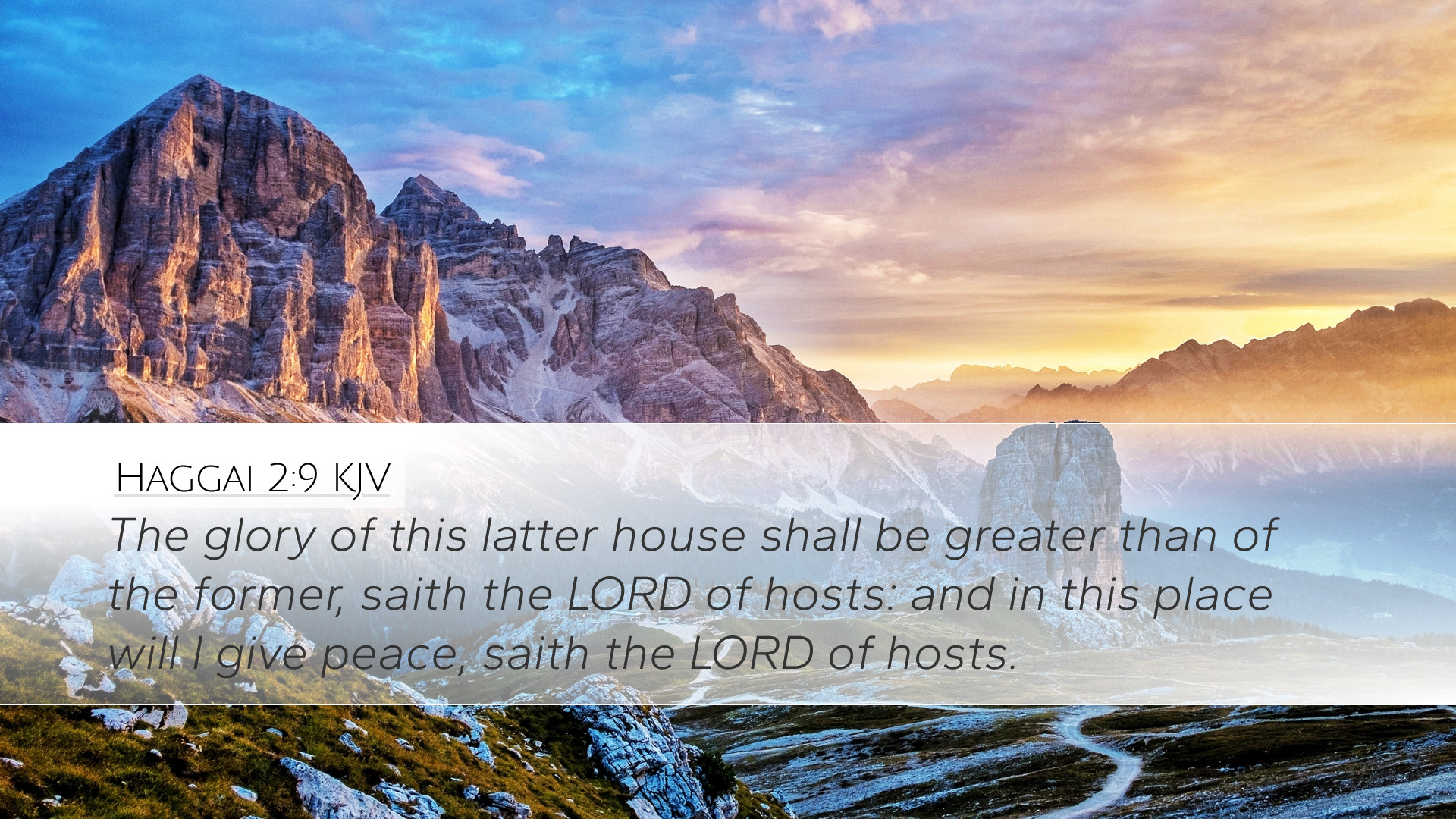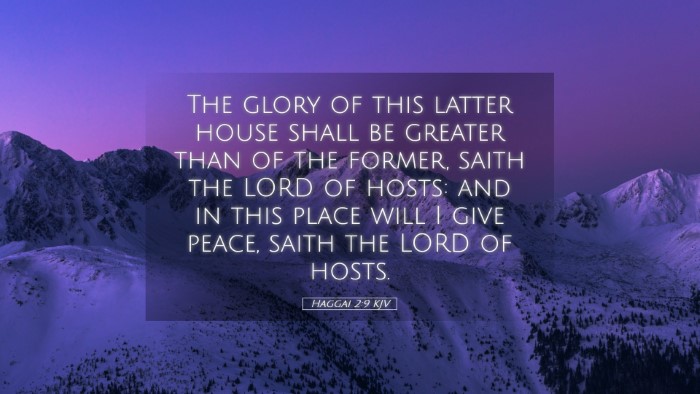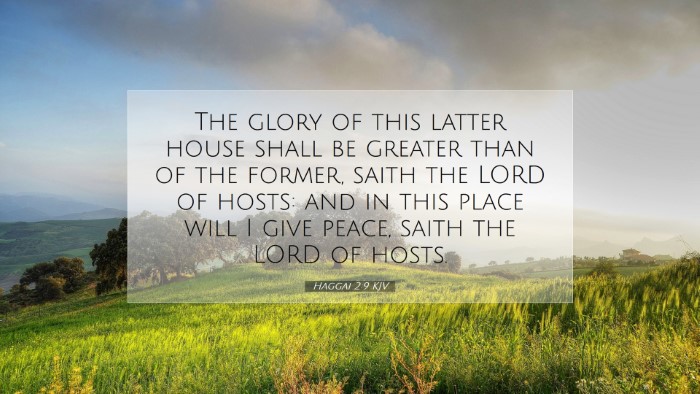Old Testament
Genesis Exodus Leviticus Numbers Deuteronomy Joshua Judges Ruth 1 Samuel 2 Samuel 1 Kings 2 Kings 1 Chronicles 2 Chronicles Ezra Nehemiah Esther Job Psalms Proverbs Ecclesiastes Song of Solomon Isaiah Jeremiah Lamentations Ezekiel Daniel Hosea Joel Amos Obadiah Jonah Micah Nahum Habakkuk Zephaniah Haggai Zechariah MalachiHaggai 2:9
Haggai 2:9 KJV
The glory of this latter house shall be greater than of the former, saith the LORD of hosts: and in this place will I give peace, saith the LORD of hosts.
Haggai 2:9 Bible Commentary
Commentary on Haggai 2:9
Verse: "The glory of this latter house shall be greater than of the former, saith the LORD of hosts: and in this place will I give peace, saith the LORD of hosts."
Introduction
The verse from Haggai 2:9 presents a profound declaration regarding the future glory of the House of God. The text serves as a message of encouragement to the post-exilic community, particularly the Israelites who had returned to rebuild the temple after the Babylonian captivity. This commentary synthesizes insights from several public domain theologians to explore the depths of this promise made by the LORD of hosts.
Contextual Background
The prophecy of Haggai comes at a crucial time in Israel's history. After the Babylonian exile, the people were discouraged, facing opposition and difficulties as they began the work of rebuilding the temple. Matthew Henry notes that the discouragement stemmed not only from external challenges but also from a comparison of the new temple to Solomon's magnificent structure. Haggai's message, therefore, seeks to restore hope and assure the people that God's presence would be with them in this new temple.
The Glory of the Latter House
In Haggai 2:9, God promises that the glory of the latter house will surpass that of the former. Albert Barnes elaborates on this by indicating that the “latter house” refers to the temple being built in Haggai's time. The glory signifies not only physical grandeur but also the spiritual significance associated with it. This verse symbolizes the hope of greater blessings and a profound divine presence that would ultimately culminate in the coming of Christ, who embodies this promised glory.
Connection to Christ
Adam Clarke connects this verse to the New Testament, pointing out that Jesus fulfills the prophecy of greater glory through His incarnation, ministry, and the church's formation. The temple's glory is thus seen in the reality of Jesus—the true temple in whom all the fullness of God dwells. This perspective encourages believers to view the church, the body of Christ, as a continuation of the promise that God will establish a place of His presence among His people.
Peace in this Place
The latter part of Haggai 2:9 states, “and in this place will I give peace.” Here, the term “peace” (Hebrew: Shalom) transcends mere absence of conflict. Matthew Henry emphasizes that this peace encompasses completeness, welfare, and tranquility, suggesting that peace is rooted in a restored relationship with God.
Implications for the Community
This declaration of peace is significant for the community, as it reassures them that despite their hardships, God's favor would rest upon them as they commit to His work. Albert Barnes notes that when God's people are engaged in bringing glory to His house, they can expect His favorable presence and peace in their endeavors.
Applications for Today’s Believers
In the contemporary context, believers are called to find their identity in Christ, as they are part of the spiritual house God is building. The church today, though it may face various challenges, is reminded that its glory comes not from external measures but from the presence of the Lord. Clarke’s insights prompt believers to seek God's glory actively and to trust in His promise of peace amidst trials.
The Assurance of God's Presence
This promise in Haggai extends beyond the physical temple to the spiritual reality that God will be with His people. God desires to dwell among them, manifesting His glory and offering peace. As pastors, students, and theologians reflect on this passage, it serves as a reminder that no matter the circumstances, God's presence remains a source of strength.
Conclusion
Haggai 2:9 encapsulates the hope of glory and peace that God assures His people. By drawing on the insights of Matthew Henry, Albert Barnes, and Adam Clarke, we can understand the verse's rich implications for both the historical context of Israel and for present-day believers. As we build God's house today, we can be confident that His glory will surpass all past glory and that His peace will reign in our hearts and communities.


